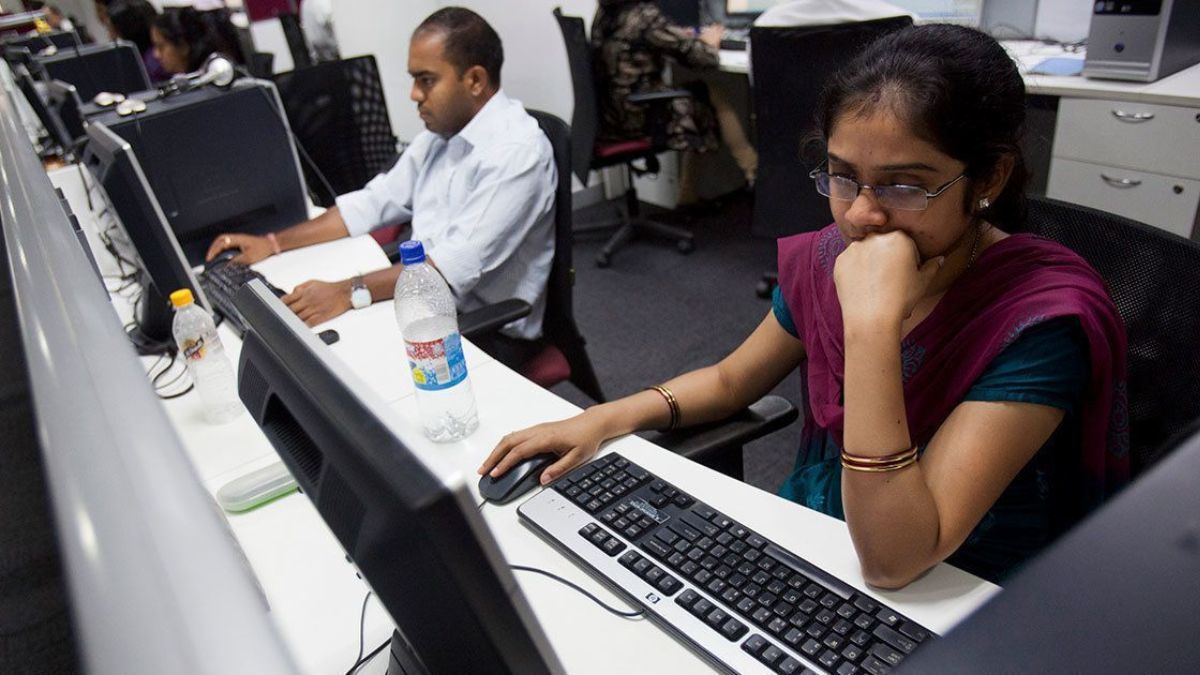India, known for its vibrant startup culture and burgeoning corporate workforce, faces a grim reality. A recent report has revealed that a staggering 86 per cent of Indians feel they are “suffering” or “struggling” at their workplace.
While only a mere 14 per cent of Indians feel that they are “thriving” at their workplace, the 2024 Gallup State of the Global Workplace report revealed. The concerning figure is significantly lower than the global average of 34 per cent.
The report examined employee mental health and well-being worldwide and categorised respondents into three categories: thriving, struggling, or suffering.
Those who rated their present life situation positively (7 or higher) and had a promising outlook for the next five years were classified as “thriving.”
On the other hand, those with uncertain or negative beliefs about their present and future life situations, potentially including stress and financial worries, were classified as “struggling” or “suffering”.
What factors are contributing to Indians being unhappy at work and what else does the report reveal? Let’s take a closer look
Poor employee engagement
The report reveals that 48 per cent of India’s workforce lacks engagement in their roles, while only 32 per cent feel actively engaged.
“I am getting a salary from this work. So, I have to do it, but there is a bit of boredom in doing the same work every day,” Archana, a Delhi-based marketing supervisor told The Financial Express.
Quick Reads
View AllDespite this monotonous routine, Indian employees show higher engagement compared to the global average of 23 per cent. Globally, 20 per cent of workers consider themselves actively disengaged at their jobs.
Employee engagement refers to the commitment and motivation employees feel towards their tasks, boosting productivity and employee satisfaction at the workplace.
“Actively disengaged employees feel disgruntled and disloyal because most of their workplace needs are unmet, and they actively oppose their employer’s goals,” the report pointed out.
Challenges for mental health
The well-being of Indian employees reflects concerning trends, with many reporting heightened negative emotions at work. The report reveals that around 35 per cent of Indian employees feel daily anger when at work, the highest in South Asia, whereas a substantial 31 per cent report experiencing deteriorating mental health, including anxiety and depression.
In South Asia, as many as 29 per cent of workers felt lonely, while around 42 per cent felt they were sad. Remote work also seems to amplify these feelings, as 25 per cent of workers reported feeling lonely compared to 16 per cent of on-site workers.
The report also found that loneliness affects younger employees under 35 more than their older counterparts, with equal proportions of men and women, each at 20 per cent, reporting feelings of isolation. Job levels also appear to have little association with loneliness.
With poor overall well being, the report said that more than half of global employees are looking to switch their job looking for healthier workplaces.
The job hunt
According to the report, 57 per cent of Indian employees view the job market favourably, though this represents a slight decrease of 2 per cent from the previous year. This figure exceeds the South Asian average of 48 per cent.
However, despite the positive outlook, 52 per cent of India’s workforce is actively seeking new job opportunities, which is lower than the regional average but still raises concerns for employers and employees alike.
Highlighting similar concern, Gallup’s global research director Rajesh Srinivasan said in a statement,“The region’s high rate of employees looking to leave their current positions underscores the critical need for employers to engage and support their workforce more effectively. Employers need to focus on prioritising their employees’ work-life experiences if they want to improve their wellness and reduce turnover.”
Push for employee well-being
According to Gallup, employers should prioritise creating effective teams and offering benefits and flexibility to enhance employee well-being. “Employees who dislike their jobs tend to have high levels of daily stress and worry, as well as elevated levels of all other negative emotions,” it said.
Addressing dissatisfaction in the workplace can lower stress levels and negative emotional experiences, thereby boosting overall job satisfaction and productivity, it further said.
“Employers should provide appropriate benefits and flexibility to support employee wellbeing without neglecting their greatest lever on employee life evaluation: building productive, high-performing teams,” Gallup said.
With input from agencies
)